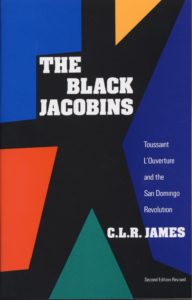



He is currently Arts and Humanities Research Council theme leadership fellow for 'Translating Cultures'. James (and various versions of The Black Jacobins) in situating the Haitian Revolution and its leader in a wider context of debates on Empire, decolonization and their afterlives.Ĭharles Forsdick is James Barrow Professor of French at the University of Liverpool. Reasserting in response a reading of Louverture as the 'Black Jacobin' in an age of revolutions, the paper considers the key role still played by C.L.R. The paper focuses on the domestication of the revolutionary implications of Louverture's life by those who have presented him as an ancien régime figure, and detects the renewal of such thinking in what has been identified as a recent 'conservative turn' in global histories of the revolutionary age. Rudder, Bill Schwarz, David Scott, Russell Maroon Shoatz, Matthew J.Professor Charles Forsdick (Liverpool) - Reflecting on the recent experience of writing (with Christian Høgsbjerg) a biography of Toussaint Louverture, I draw in the talk on Edouard Glissant's claim - in his Caribbean Discourse - of the continued need to 'argue around Toussaint'. Hill, Christian Høgsbjerg, Selma James, Pierre Naville, Nick Nesbitt, Aldon Lynn Nielsen, Matthew Quest, David M. Fick, Charles Forsdick, Dan Georgakas, Robert A.

Bracey Jr., Rachel Douglas, Laurent Dubois, Claudius K. Mumia Abu-Jamal, David Austin, Madison Smartt Bell, Anthony Bogues, John H. The Reader also includes the reflections of activists and novelists on the book’s influence and a transcript of James’s 1970 interview with Studs Terkel. In addition to considering the book’s literary qualities and its role in James’s emergence as a writer and thinker, the contributors discuss its production, context, and enduring importance in relation to debates about decolonization, globalization, postcolonialism, and the emergence of neocolonial modernity. James’s classic history of the Haitian Revolution. Containing a wealth of new scholarship and rare primary documents, The Black Jacobins Reader provides a comprehensive analysis of C.


 0 kommentar(er)
0 kommentar(er)
